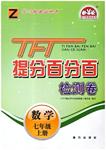阅读理解。
Driving to a friend's house on a recent evening, I was attracted by the sight of the full moon rising just
above my friend's rooftops. I stopped to watch it for a few moments, thinking about what a pity it was
that most city people, myself included, usually miss sights like this because we spend most of our lives
indoors.
My friend had also seen it. He grew up living in a forest in Europe, and the moon meant a lot to him
then. It had touched much of his life.
I know the feeling. Last December I took my seven-year-old daughter to the mountainous jungle of
northern India with some friends. We stayed in a forest rest-house with no electricity or running hot
water. Our group had campfires(篝火) outside every night, and indoors when it was too cold outside.
The moon grew to its fullest during our trip. Between me and the high mountains lay three or four valleys. Not a light shone in them and not a sound could be heard. It was one of the quietest places I have ever
known, a bottomless well of silence. And above me was the full moon, which struck me deeply.
Today our lives are filled with glass, metal, plastic and fibre-glass. We have televisions, cell phones,
pagers, electricity, heaters and ovens and air-conditioners, cars, computers.
Struggling through traffic that evening at the end of a tiring day, most of it spent indoors, I thought:
before long, I would like to live in a small cottage. There I will grow vegetables and read books and walk
in the mountains. I may become an old man there, and wear the bottoms of my trousers rolled and
measure out my life in coffee spoons. But I will be able to walk outside on a cold silent night and touch
the moon.
1. The best title for the passage would be______.
A. Touched by the moon
B. The pleasures of modern life
C. A bottomless well of silence
D. Break away from modern life
2. The writer felt sorry for himself because________.
A. there was too much pollution
B. he seldom enjoyed the fullest moon outsides
C. he didn't adapt to modern inventions
D. there were too many accidents on the road
3. What impressed the writer most in the mountainous jungle of northern India?
A. No modern equipment
B. Complete silence.
C. The nice moonlight
D. The high mountains
4. Modern things (Paragraph 4) are mentioned mainly to______.
A. show that the writer likes city life very much
B. tell us that people greatly benefit from modern life
C. explain that people have fewer chances to enjoy nature
D. show that we can also enjoy nature at home through them

 提分百分百检测卷系列答案
提分百分百检测卷系列答案